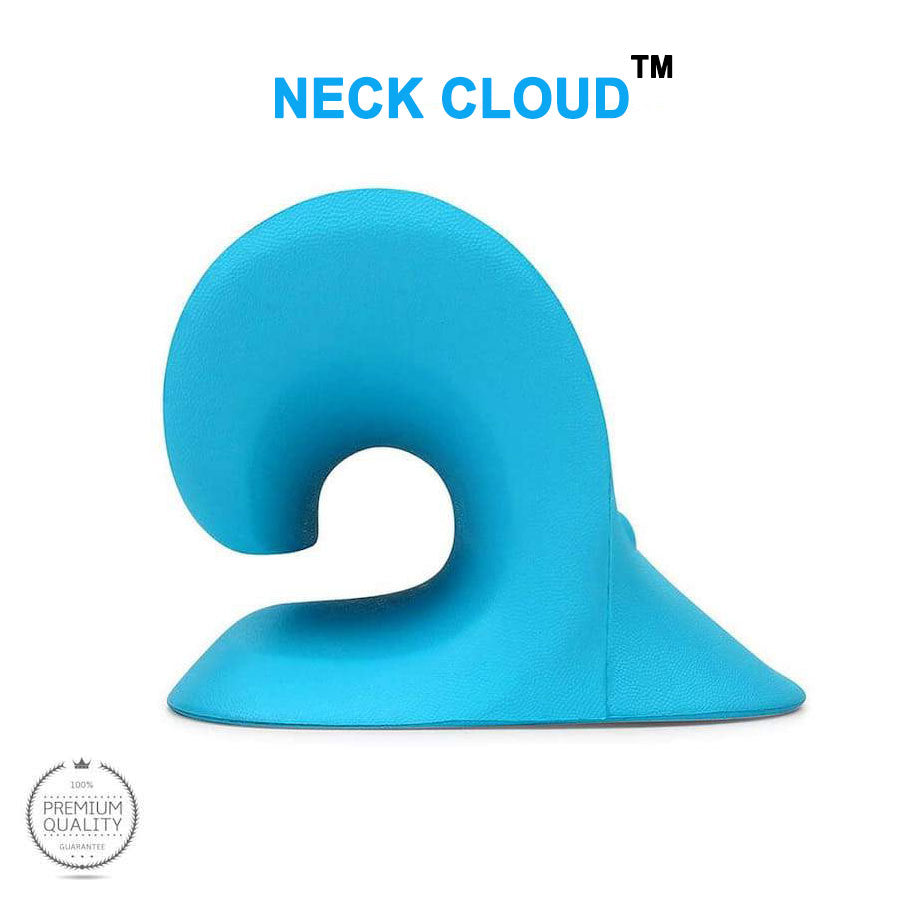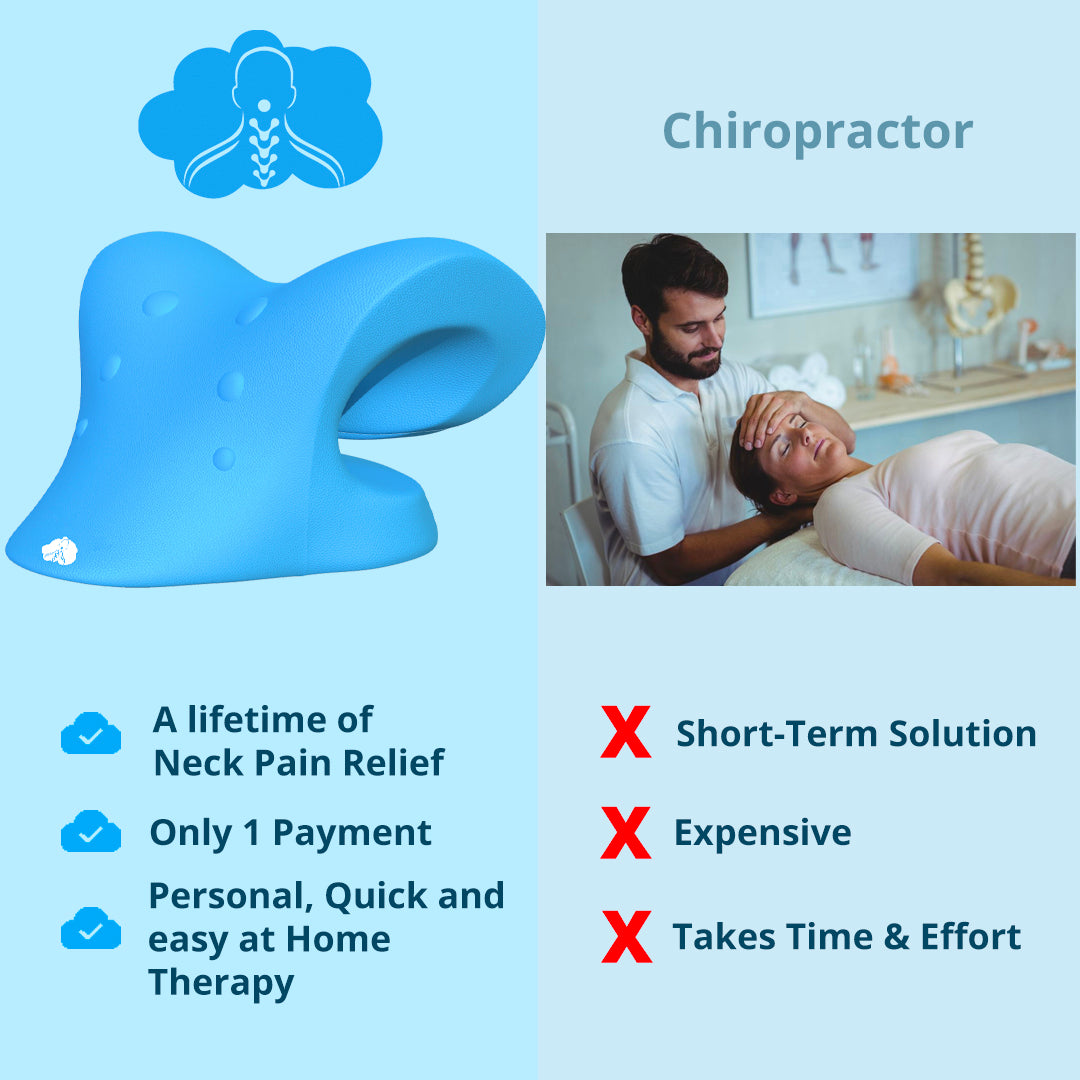Neck Cloud: Cutting-edge Support for Discomfort Alleviation and Better Stance
Neck Cloud: Cutting-edge Support for Discomfort Alleviation and Better Stance
Blog Article
The Effect of Stress on Neck Pain: Methods for Lowering Stress and Pain
In today's hectic world, it's no key that stress has come to be a widespread aspect in the onset and worsening of neck pain. The detailed relationship in between anxiety and muscle mass stress frequently leaves individuals looking for relief from the discomfort that follows. By discovering targeted methods intended at reducing tension and promoting relaxation, one can start to address the root creates of neck pain and job in the direction of a much more balanced state of health. Join us on a journey to untangle the effect of anxiety on neck pain and discover efficient means to minimize pain and boost general quality of life.
Comprehending Stress-Related Neck Discomfort
Stress-related neck pain can manifest as tension, tightness, or discomfort in the neck and shoulder area. The link in between stress and neck discomfort lies in the body's physical feedback to stress, which can result in muscle tension and rigidity in the neck muscular tissues.

Identifying Common Stress Areas
Frequently experienced by people under anxiety, stress locations in the body can provide beneficial insights right into the physical manifestations of emotional strain. One usual stress area is the neck, where anxiety usually shows up literally. Stress headaches, rigid neck muscular tissues, and limited variety of movement are common signs of stress-related neck tension. The shoulders are another common location where stress builds up. Anxiety can create the muscular tissues in the shoulders to tighten up, resulting in pain and pain. Furthermore, the top back is prone to stress accumulation, specifically in individuals that experience chronic stress and anxiety. Poor posture and extended sitting can aggravate tension in this location. The jaw is additionally a typical location for stress-related stress, as many people squeeze their jaw or grind their teeth when worried. Recognizing these typical stress locations can help individuals identify the physical indicators of stress and take actions to address them before they intensify into persistent discomfort or discomfort.
Applying Relaxation Strategies
To properly manage stress-related tension in the body, carrying out leisure techniques is vital. Relaxation techniques are valuable devices for decreasing neck discomfort triggered by tension. Deep breathing exercises can aid relax the mind and relax stressful muscles in the neck and shoulders (neck cloud). Exercising mindfulness meditation can likewise be useful in reducing anxiety and advertising leisure. Progressive muscle leisure, where you systematically strained and after that unwind different muscular tissue teams, can release built-up tension in the neck location. Additionally, activities like yoga exercise and tai chi include both physical activity and leisure, making them efficient practices for decreasing anxiety and neck pain. Taking routine breaks throughout the day to stretch and loosen up can stop muscular tissue rigidity and stress from building up. By including these relaxation techniques right into your everyday regimen, you can aid take care of stress levels, decrease stress in the neck, and alleviate pain connected with stress-induced neck pain.
Including Self-Care Practices
Integrating self-care techniques is important for preserving general well-being and handling stress-related neck pain successfully. Taking part in normal exercise, such as mild stretching workouts or yoga, can help reduce tension in the neck and shoulders. Exercising great position throughout the day and taking constant breaks from prolonged sitting or display time can likewise prevent stress on the neck muscles.
In addition, prioritizing ample sleep and establishing a constant sleep routine can add substantially to lowering stress levels and advertising relaxation. Producing a relaxing going to bed regimen, such as reading a book or taking a warm bath, can assist prepare the mind and body for relaxing sleep. Furthermore, maintaining a balanced diet plan abundant in nutrients and remaining moisturized can support total wellness and decrease inflammation that might intensify neck pain.
Including mindfulness methods, such as deep breathing workouts or meditation, can help take care of tension and advertise leisure. Taking time for oneself, participating in pastimes, and establishing limits to protect individual time are also crucial aspects of self-care that can add to decreasing stress and anxiety and relieving neck pain.
Looking For Professional Aid
How can people effectively attend to persistent neck discomfort that is impacting their day-to-day live and well-being? Looking for professional assistance can be an essential action in handling and minimizing neck discomfort. Consulting with healthcare specialists such as chiropractics physician, physiotherapists, or orthopedic professionals can provide important understandings and personalized treatment strategies. These specialists can conduct read this extensive analyses to diagnose the underlying reasons for neck pain and advise ideal interventions.
Chiropractic practitioners focus on spine adjustment strategies to boost Visit Website placement and lower stress in the neck location. Physiotherapists supply targeted workouts and stretches to reinforce muscular tissues, boost adaptability, and boost total neck feature. Orthopedic experts can supply sophisticated medical interventions such as injections or medical alternatives for extreme situations of neck pain.
Conclusion

Stress-related neck pain can manifest as tension, stiffness, or discomfort in the neck and shoulder area. The link in between stress and anxiety and neck discomfort lies in the body's physiological response to tension, which can result in More hints muscle tension and tightness in the neck muscles. Stress frustrations, tight neck muscular tissues, and limited variety of motion are common symptoms of stress-related neck stress. By including these relaxation methods into your everyday routine, you can aid take care of tension levels, minimize tension in the neck, and reduce pain connected with stress-induced neck pain.

Report this page